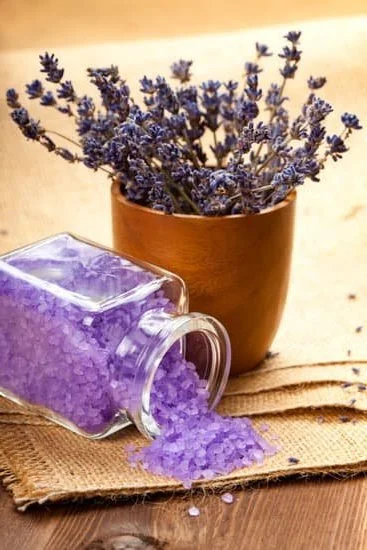Aromatherapy has been used for centuries as a natural healing practice, harnessing the power of essential oils to treat a variety of physical and emotional ailments. Essential oils are highly concentrated plant extracts that have been found to offer therapeutic benefits, including stress relief, pain management, and improved mental well-being. In this article, we will explore the healing potential of aromatherapy, its origins, and the science behind how it works.
The use of aromatherapy can be traced back thousands of years to ancient civilizations such as Egypt, China, and India. These cultures recognized the potent healing properties of essential oils and incorporated them into their medical practices and spiritual rituals. Today, aromatherapy continues to be a popular holistic treatment that is used in conjunction with traditional medicine or as an alternative therapy for various health conditions.
Essential oils are not only known for their pleasing scents but also for their ability to influence our emotions and physical well-being. Research has shown that certain essential oils can have a profound effect on the brain by interacting with our olfactory system and affecting mood-regulating hormones.
As we delve into what aromatherapy can treat, we will discover its potential in alleviating stress and anxiety, managing pain, improving skin conditions, aiding sleep and relaxation, as well as promoting respiratory health and emotional well-being. Whether you are seeking natural remedies for common ailments or simply want to enhance your overall wellness, aromatherapy offers a myriad of potential benefits.
Understanding Aromatherapy
Aromatherapy, also known as essential oil therapy, is a holistic healing treatment that uses natural plant extracts to promote physical, mental, and emotional well-being. The practice of aromatherapy dates back thousands of years, with its roots in ancient civilizations such as Egypt, China, and India. These cultures discovered the powerful healing properties of essential oils and used them for medicinal and spiritual purposes.
Essential oils are extracted from various parts of plants, including the flowers, leaves, bark, stems, and roots. They contain concentrated active compounds that give them unique therapeutic properties. When these essential oils are inhaled or applied to the skin, they can have profound effects on the body and mind. The aromatic molecules from the oils interact with the olfactory system in the brain and stimulate the limbic system, which is responsible for emotions and memories.
In addition to its ancient origins, modern scientific research has also shed light on how aromatherapy works. Studies have shown that certain essential oils can have an impact on neurotransmitters in the brain, such as serotonin and dopamine, which play a role in mood regulation.
Furthermore, essential oils have been found to possess anti-inflammatory, antibacterial, antiviral, and analgesic properties. This combination of historical use and scientific evidence underscores the effectiveness of aromatherapy in treating a wide range of physical and psychological ailments.
The Science Behind Aromatherapy
Aromatherapy, the use of essential oils to promote physical and mental well-being, has been used for centuries in various cultures around the world. The practice is based on the idea that the aromatic compounds in essential oils can have therapeutic effects when they are inhaled or applied to the skin. These natural plant extracts are believed to interact with the body in a way that can positively impact health and mood.
How Aromatherapy Works
The sense of smell is closely linked with the brain’s limbic system, which plays a role in emotions, behavior, and memory. When essential oils are inhaled, their aroma molecules travel through the nasal cavity and can stimulate this part of the brain.
This may explain why certain scents can evoke strong emotional responses or trigger specific memories. Additionally, when essential oils are applied topically, their chemical compounds can be absorbed into the bloodstream and have physical effects on the body.
The Influence of Essential Oils on Health
Research has shown that different essential oils may have varying effects on both mental and physical health. For example, some scents have been found to have calming properties that can help reduce stress and anxiety levels, while others may have energizing effects that can improve focus and concentration. Some essential oils also have anti-inflammatory, antiviral, or antibacterial properties that make them useful for treating certain health conditions.
What Can Aromatherapy Treat?
Aromatherapy has been used as a complementary therapy to support conventional medical treatment for a variety of health concerns. It has been found to be effective for managing stress and anxiety, providing pain relief, improving skin conditions, promoting better sleep quality, supporting respiratory and digestive health, and enhancing emotional well-being. As more research is conducted on aromatherapy, its potential benefits for overall wellness continue to be explored.
What Can Aromatherapy Treat
Aromatherapy has been utilized for centuries as a natural remedy for various ailments, including stress and anxiety. The use of essential oils in aromatherapy can have a calming and relaxing effect on the mind and body, making it an effective treatment for these common mental health issues. Here are some of the key benefits of aromatherapy for stress and anxiety:
- Stress reduction: Certain essential oils, such as lavender, chamomile, and bergamot, have been shown to have stress-reducing properties. When inhaled or applied topically, these oils can help promote relaxation and ease tension.
- Anxiety relief: Aromatherapy can also be beneficial for managing symptoms of anxiety. Essential oils like rosemary, ylang-ylang, and frankincense are known for their calming effects, helping to alleviate feelings of restlessness and uneasiness.
- Mood enhancement: In addition to reducing stress and anxiety, aromatherapy can also uplift the mood. Citrusy scents like lemon and orange have been found to have mood-boosting properties, which can be beneficial for those dealing with emotional distress.
It is important to note that while aromatherapy can provide temporary relief from stress and anxiety symptoms, it is not a substitute for professional medical treatment. Individuals with severe or chronic mental health conditions should seek guidance from a qualified healthcare provider.
Incorporating aromatherapy into your daily routine can be a simple yet effective way to manage stress and anxiety naturally. Whether through diffusing essential oils at home, using them in massage therapy sessions, or creating personalized blends for personal use, aromatherapy offers versatile options for promoting mental well-being.
Aromatherapy for Pain Relief and Management
Aromatherapy has been used for centuries as a natural way to alleviate pain and manage discomfort. The use of essential oils in aromatherapy can provide relief for various types of pain, including headaches, muscle aches, and joint pain. These essential oils can be applied through massage, added to bathwater, or inhaled using a diffuser. Here are some common essential oils that are known for their pain-relieving properties:
- Lavender oil: Known for its calming and relaxing effects, lavender oil can also help relieve headaches and migraines.
- Peppermint oil: With its cooling sensation, peppermint oil is often used to alleviate muscle and joint pain.
- Eucalyptus oil: This oil has anti-inflammatory and analgesic properties, making it effective for relieving respiratory conditions such as sinus congestion and coughs.
Research has shown that certain essential oils can help reduce the perception of pain by influencing the brain’s limbic system, which is responsible for regulating emotions and behavior. The scent of these oils can also trigger the release of endorphins, which are the body’s natural painkillers.
In addition to providing relief from physical pain, aromatherapy can also assist in managing chronic pain conditions such as arthritis or fibromyalgia. When used in conjunction with other therapies, such as massage or acupuncture, aromatherapy has the potential to enhance the overall effectiveness of pain management strategies. Overall, aromatherapy offers a natural and holistic approach to easing discomfort and improving quality of life.
Aromatherapy for Skin Conditions and Beauty
Aromatherapy is not just for relaxation and stress relief, it can also be beneficial for various skin conditions and beauty concerns. Essential oils have been used for centuries to improve skin health, address skin issues, and enhance overall beauty. Here’s a closer look at how aromatherapy can be used for skin conditions and beauty.
Improving Skin Health
Many essential oils possess anti-inflammatory, antimicrobial, and antioxidant properties that can be beneficial for treating acne, eczema, psoriasis, and other skin conditions. For example, tea tree oil is known for its antimicrobial properties and can help reduce acne breakouts. Lavender oil has anti-inflammatory effects that can soothe irritated skin associated with eczema or psoriasis.
Enhancing Beauty Concerns
In addition to addressing skin conditions, essential oils are often used in beauty products for their abilities to improve the texture, tone, and appearance of the skin. Rosehip oil is rich in vitamins and antioxidants, making it a popular choice for anti-aging products. Frankincense oil is believed to promote cellular regeneration and can be found in many skincare products designed to improve the elasticity of the skin.
Safety Precautions
It’s important to note that essential oils are highly concentrated substances that should be used with caution. Some essential oils may cause allergic reactions or sensitivities in certain individuals. It’s recommended to dilute essential oils with a carrier oil before applying them to the skin and perform a patch test before using them on a larger area of the body.
Aromatherapy offers a natural approach to addressing various skin conditions and enhancing beauty concerns. By understanding the properties of different essential oils and their potential benefits for the skin, individuals can incorporate aromatherapy into their skincare routines for healthier and more radiant-looking skin.
Aromatherapy for Sleep and Relaxation
Aromatherapy has been used for centuries to promote relaxation and improve sleep quality. Essential oils such as lavender, chamomile, and bergamot are known for their calming and sedative properties, making them popular choices for aromatherapy for sleep and relaxation. These essential oils can be inhaled or applied topically through massage or diluted in a carrier oil.
Research has shown that certain essential oils used in aromatherapy can help reduce symptoms of insomnia and improve overall sleep quality. A study published in the journal Evidence-Based Complementary and Alternative Medicine found that participants who inhaled lavender essential oil before bedtime experienced improved sleep quality compared to those who did not use the oil.
Another study published in the Journal of Alternative and Complementary Medicine found that chamomile essential oil was effective in reducing symptoms of generalized anxiety disorder, which can also contribute to poor sleep.
In addition to promoting better sleep, aromatherapy can also help reduce stress and anxiety, creating a more relaxing environment for rest and rejuvenation. By incorporating aromatherapy into a bedtime routine, individuals can create a soothing atmosphere that prepares the mind and body for restful sleep.
| Essential Oil | Benefits |
|---|---|
| Lavender | Improves sleep quality, reduces anxiety |
| Chamomile | Reduces symptoms of insomnia and anxiety |
| Bergamot | Promotes relaxation and reduces stress |
Aromatherapy for Respiratory and Digestive Health
Aromatherapy has been used for centuries to treat a wide range of ailments, including those related to respiratory and digestive health. Essential oils have powerful properties that can help alleviate symptoms and promote overall well-being in these areas. When inhaled or applied topically, essential oils can have a positive impact on the respiratory system, digestive system, and overall immune function.
For respiratory health, certain essential oils such as eucalyptus, peppermint, and tea tree oil have been found to be effective in relieving congestion, easing breathing difficulties, and reducing inflammation in the lungs. These oils can be used in a diffuser or added to a warm bath to help clear nasal passages and support overall respiratory function. Aromatherapy can also be beneficial for those dealing with asthma, allergies, or sinus issues.
In terms of digestive health, aromatherapy can offer relief from symptoms such as bloating, indigestion, and nausea. Essential oils like ginger, peppermint, and lemon can aid digestion, reduce stomach discomfort, and even help with appetite control. Additionally, some essential oils have antimicrobial properties that can help protect against harmful bacteria in the gut. Including these essential oils into your daily routine through diffusers or topical applications can aid in supporting overall digestive balance.
| Respiratory Health | Digestive Health |
|---|---|
| Eucalyptus oil relieves congestion | Ginger oil aids digestion |
| Peppermint oil eases breathing difficulties | Peppermint oil reduces stomach discomfort |
| Tea tree oil reduces inflammation in the lungs | Lemon oil helps with appetite control |
Aromatherapy for Mental Health and Emotional Well-Being
Aromatherapy has been used for centuries as a natural remedy for promoting mental health and emotional well-being. The use of essential oils in aromatherapy can have a profound effect on the mind, helping to alleviate symptoms of stress, depression, and anxiety. The soothing scents of essential oils can help calm the mind and promote relaxation, making aromatherapy an effective tool for managing mental health conditions.
One of the key benefits of aromatherapy for mental health is its ability to reduce stress and anxiety. Certain essential oils, such as lavender, chamomile, and bergamot, have been found to have calming properties that can help ease feelings of tension and worry. Inhaling these fragrant oils through diffusers or applying them topically can help induce a sense of calmness and tranquility, providing relief for those struggling with stress or anxiety.
In addition to its stress-relieving properties, aromatherapy has also been found to be beneficial for managing symptoms of depression. Essential oils like lemon, grapefruit, and frankincense are known for their uplifting and mood-boosting effects. These oils can help elevate mood and promote feelings of positivity and well-being. Incorporating aromatherapy into daily routines can provide much-needed support for individuals dealing with emotional distress. What Can Aromatherapy Treat.
With its powerful impact on mental health and emotional well-being, it’s no wonder that aromatherapy has become a popular holistic approach for promoting overall wellness. Whether used alone or in combination with other therapeutic techniques, aromatherapy offers a natural and gentle way to support mental health and emotional balance.
Conclusion
In conclusion, aromatherapy has been shown to have a wide range of healing benefits for both physical and mental health. From relieving stress and anxiety to promoting better sleep and relaxation, essential oils have the potential to improve overall well-being. Additionally, aromatherapy has been found to aid in pain relief, skin conditions, respiratory and digestive health, as well as supporting emotional well-being and mental health.
The use of aromatherapy is a holistic approach that can complement traditional medical treatments. It is important to note that while essential oils can offer therapeutic benefits, they are not a replacement for professional medical advice or treatment. However, incorporating aromatherapy into daily life can serve as an alternative or complementary form of therapy for various ailments.
Overall, embracing the healing power of aromatherapy in daily life can provide individuals with additional tools for self-care and wellness. Whether it is using essential oils in a diffuser at home, adding them to a bath, or receiving aromatherapy massages from trained professionals, the potential benefits are numerous.
As scientific research continues to explore the effects of essential oils on the body and mind, it is clear that aromatherapy has the potential to treat a wide range of physical and emotional conditions.
Frequently Asked Questions
What Conditions Can Aromatherapy Treat?
Aromatherapy can be used to treat a variety of conditions such as stress, anxiety, insomnia, headaches, muscle pain, and even certain skin conditions. Different essential oils can target different symptoms and provide relief to the body and mind.
What Are the Healing Powers of Aromatherapy?
The healing powers of aromatherapy lie in its ability to positively impact the body and mind through the inhalation or topical application of essential oils. Certain scents can help to relax, uplift, or invigorate an individual, leading to reduced stress levels, improved mood, and even alleviation of physical discomfort.
What Ways Can Aromatherapy Be Used?
Aromatherapy can be used in a variety of ways including through inhalation (such as using a diffuser), topical application (diluted oils on the skin), or even through massage therapy. Aromatherapy can also be incorporated into bath and body products like soaps and lotions to provide a calming or rejuvenating experience for individuals.

Are you looking for a natural way to improve your health and wellbeing?
If so, aromatherapy may be the answer for you.





